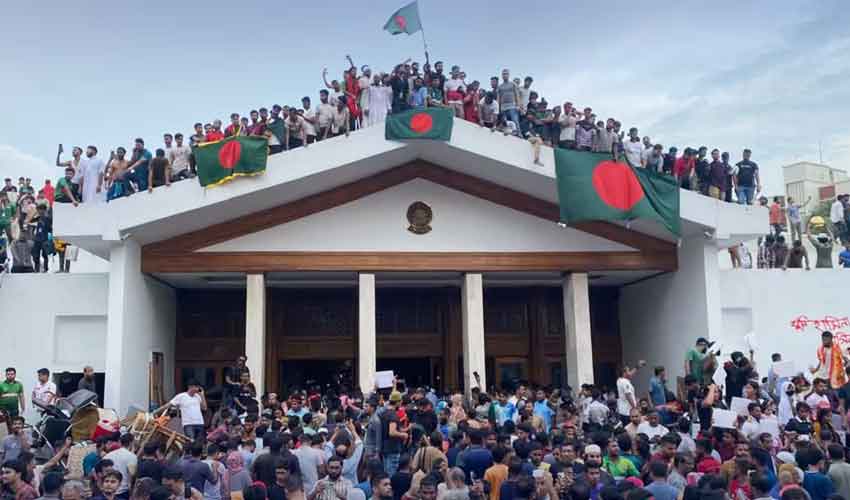
Bangladesh finds itself at a pivotal moment as the nation navigates political upheaval following Prime Minister Sheikh Hasina’s resignation amidst widespread protests. The protests, initially sparked by discontent over job quotas, escalated into a demand for Hasina’s resignation, resulting in hundreds of casualties.
Key student leaders, instrumental in the protests, have called for the formation of a new interim government, proposing Nobel laureate Muhammad Yunus as its chief adviser. Nahid Islam, a prominent organizer, emphasized their rejection of any government not aligned with their recommendation, particularly one supported or led by the army.
“We have reached out to Muhammad Yunus, who has agreed to lead as per our invitation,” Islam stated in a Facebook video alongside other organizers.
Muhammad Yunus, who founded Grameen Bank and won the Nobel Peace Prize in 2006, faces legal challenges, including recent allegations of embezzlement, which he denies.
President Outlines Election Plans and Zia’s Release
President Mohammed Shahabuddin addressed the nation, affirming the interim government’s commitment to prompt elections after consultations with all stakeholders. Additionally, he announced that they would release Begum Khaleda Zia, leader of the opposition Bangladesh Nationalist Party (BNP). She had been hospitalized following her conviction in a graft case.
Also Read: Youm-e-Istehsal: A Day of Protest Against India’s Kashmir Actions
Hasina, who had governed Bangladesh since 2009 after a protracted political rivalry with Zia, departed Dhaka and reportedly arrived in India before possibly continuing to the United Kingdom. Reports suggest that she arrived at a military airfield near Delhi, but details of her stay remain undisclosed.

[…] Also Read: Bangladesh Awaits Interim Government: Army Chief to Meet Protesters […]